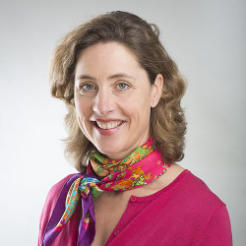Securing transformational gifts from major donors remains the Holy Grail for fundraisers. Yet the profile of these people and the way in which they interact with the sector is changing as Hugh Radojev found out.
According to a survey conducted by wealth consultancy firm New World Wealth in August, London has become the de-facto ‘millionaire capital of the world’, over-taking New York and Tokyo in the process.
New World Wealth says that one in every 35 people in London – which is the equivalent to 395,600 people – own assets worth more than £1m. According to the same survey, London is also home to a tenth of all the billionaires on the planet, with 72 people (a combined net worth of over £200bn) calling the capital home.
In other words there are a huge number of prospective major donors out there. The problem is, how do charities approach them? And, once they’ve been approached, what is it that HNW and UHNW individuals want from your organisation?
Over 40 major donor fundraisers and at least one journalist found out the answers to these questions, as Plum Lomax, deputy head of the funders team at New Philanthropy Capital (pictured) and Vanessa Smye from UBS Wealth Management spoke at the final Fundraising First Thing for 2015.
Wealth managers and advisors can’t be trusted to bring up philanthropy
Would-be philanthropists and HNWI’s often want to get involved with the charitable sector but often don’t know how to make the first step. The problem with that is, that the people who are advising them: wealth managers, solicitors and accountants, also know very little about the sector.
“Less than 10 per cent of advisors will raise the topic of giving to their clients,” says Lomax. “In over 90 per cent of cent of cases, it is usually the client who will initiate the philanthropic conversation with their advisors.”
Lomax said that issues preventing advisors from suggesting clients to be philanthropic with their money centred on a lack of knowledge of the sector and an unwillingness to “give clients’ money away”.
“Show the advisors that your organisation can be responsible with their clients’ money. Show that you can measure your impact and, that you can even build growth for their younger generation”.
When talking to wealth advisors, use financial language
The success or failure of a wealth advisors is measured by three things: what money they bring in for a client, whether they can retain clients and how many people they can meet.
They are obsessed with money, says Vanessa Smye, whose unique career path has seen her work in both the finance and fundraising sectors.
“If you can speak their language when you first meet them, you can put them at ease and, ultimately, perhaps make them trust you with their client’s money. Think of the terminology: instead of talking about donations and spend, talk about the sorts of ‘returns on investment’ that you can bring their clients.”
Read financial papers and journals
When Smye started out working on major donor partnership building at Scope, she says that she religiously read papers and journals like the Financial Times, City AM and other titles. This, she says, gave her a greater understanding of what was happening in the financial sector and who the major players were.
“My absolute Bible, when I started out at Scope was the Spear’s 500. It provides a full, up-to-date list of both UHNW and HNW wealth managers, their contact details and little biographies of the people whose money they hold.”
Smye says this information was invaluable when she began meeting with wealth managers in an attempt to convince them to make philanthropic donations on behalf of their clients.
Once engaged, philanthropists would rather cut back on 'anything' than charity
If your organisation can really connect with a UHNW or HNW individual and form a relationship with them, then they would rather give up just about “anything” rather than their philanthropy, says Lomax.
“Research we’ve conducted shows that, once engaged, HNWI’s would rather cut back on luxury goods, staff and holidays than their charitable giving."
Lomax says the best way to make your organisation so important to a perspective philanthropist is to “find the donor’s sweet spot”.
“There will be a part of the picture, where an area of need, the donor’s personal interest and passions and the ways in which you can explain to them how their money will help your organisation that intersect in that sweet spot: the focus for the donor’s giving.”
Wealth advisors are people too
Smye, who currently works as a philanthropy adviser at UBS Wealth Management, says that fundraisers shouldn’t feel intimidated when approaching HNWI advisors for the first time.
“Don’t be intimidated by wealth advisors,” says Smye. “There really isn’t that great a difference in the type of work that you as fundraisers do. At the end of the day we’re both of us just trying to raise funds”.
Smye also suggests that charities should treat wealth firms the same way as they would “any other prospects”.









